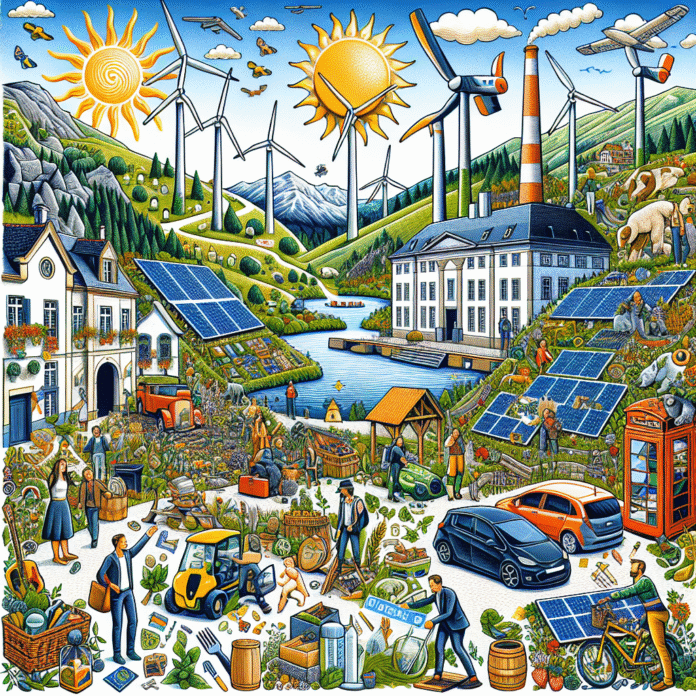Securing Europe through Climate Protection
New Policy Brief Outlines Path for 1.5 Degree Lifestyles
Securing Europe Means Safeguarding the Climate: A Comprehensive Policy Brief for Achieving 1.5°C Lifestyles
In the face of escalating climate change challenges, a newly released policy brief outlines a strategic approach to align Europe’s lifestyle choices with the critical target of limiting global warming to 1.5°C. This document emphasizes that the security of Europe is intrinsically linked to the well-being of the planet, making climate action a top priority for policymakers and citizens alike.
The Urgency of Climate Action
The impacts of climate change are becoming increasingly evident, with extreme weather events, rising sea levels, and biodiversity loss threatening both human and ecological systems. As Europe grapples with these challenges, it is crucial to adopt sustainable practices that not only mitigate environmental damage but also promote social and economic stability.
Key Policy Recommendations
The policy brief presents several actionable recommendations aimed at fostering 1.5°C lifestyles across Europe:
1. **Promoting Sustainable Transportation**: Transitioning to public transportation, cycling, and walking can significantly reduce carbon emissions. Investments in infrastructure for electric vehicles and public transit systems are essential.
2. **Encouraging Renewable Energy Adoption**: Accelerating the shift to renewable energy sources such as solar, wind, and hydroelectric power will diminish reliance on fossil fuels and decrease greenhouse gas emissions.
3. **Enhancing Energy Efficiency**: Implementing stricter energy efficiency standards for buildings and appliances can lead to substantial energy savings and lower carbon footprints.
4. **Supporting Sustainable Agriculture**: Encouraging practices that prioritize local food systems, organic farming, and reduced meat consumption can help lessen the environmental impact of food production.
5. **Fostering Circular Economy Practices**: Promoting recycling, reusing materials, and reducing waste can contribute to a more sustainable economy that minimizes resource extraction and environmental degradation.
Engaging Citizens and Communities
The brief emphasizes the importance of citizen engagement in the transition to sustainable lifestyles. Public awareness campaigns, educational programs, and community initiatives can empower individuals to make environmentally conscious choices. Governments are encouraged to support grassroots movements that advocate for local sustainability practices.
Integrating Climate Policies Across Sectors
For effective climate action, it is vital to integrate climate policies across various sectors, including transportation, energy, agriculture, and urban planning. A cohesive approach ensures that all areas work in tandem to achieve climate goals, creating synergies that enhance overall effectiveness.
The Role of Technology and Innovation
Technological advancements play a crucial role in the transition to 1.5°C lifestyles. Innovations in energy storage, carbon capture, and smart grid technology can facilitate the shift towards a more sustainable future. Investment in research and development is essential to accelerate these advancements and make them accessible to all.
International Collaboration
Climate change is a global issue that transcends borders. Collaborative efforts among European nations, as well as partnerships with other countries, are vital for sharing knowledge, resources, and strategies to combat climate change effectively. Joint initiatives can amplify the impact of local actions and foster a united front against environmental degradation.
Conclusion
The call to action outlined in this policy brief is a clarion call for Europe to prioritize climate security as a means of securing a sustainable future. By adopting 1.5°C lifestyles through informed policies and collective action, Europe can lead the way in addressing the climate crisis while ensuring the well-being of its citizens and the planet. The time for decisive action is now; the future of Europe—and indeed, the world—depends on it.
